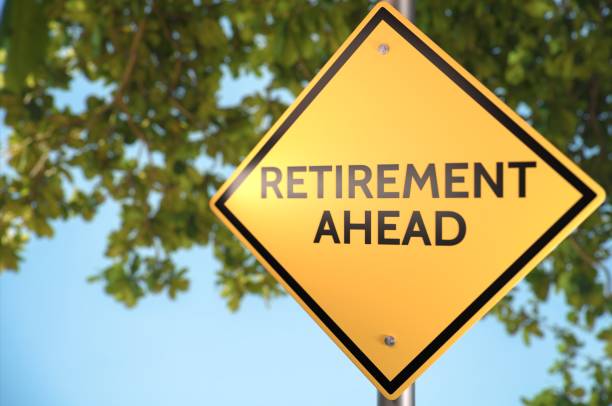
No matter what your age is, it’s important to start preparing for the time when you eventually retire. One of the biggest financial issues you may encounter while you’re ready to stop working is how much money you will need for your health care. In general, this can be a sizable amount. On average, a person of 65 would need around $190,000 to pay for costs related to their health. This estimate doesn’t even take into account any preexisting chronic conditions or disabilities.
Unfortunately, one mistake people often make regarding retiring is believing that once they reach the age of 65, they will be eligible for Medicare and that it will cover all their needs. However, in reality, Medicare isn’t free and people are responsible for covering their premiums, deductibles and copays. Retirees who require coverage for dental care, prescription drugs, vision or hearing are also required to either buy additional insurance or pay for these things out of pocket.
However, there is good news. There is a lot you can do to manage the costs of your medical care. Planning can really be a lifesaver for your costs once you retire. These are ways you can ensure that you are covered:
- Health Care Investment Account: Creating an investment account for your estimated medical costs is a great idea. You should ensure that it’s kept separate from your other retirement money. Estimating how much you will need for the future can help you to be successful at saving for these costs. Additionally, these types of accounts also allow you to save money on your taxes.
- Consider Long-Term Care Insurance: Over half of people 65 or older will require long-term care at some point in their lives. Getting a long-term care insurance policy can ensure that your future health needs are met if you require assisted living, home care or a nursing home. This option is also expensive, but it is well worth it if you save early on and already have chronic health conditions or a family history of certain conditions.
- Take Care of Your Health: If your health is better after retirement age, it will be easier on you from a financial standpoint. Your health care expenses will be less than that of someone who isn’t in good health. Eat a well-balanced diet, incorporate physical activity into your everyday routine, maintain a healthy weight and get a good night’s sleep daily. This offers you a dual benefit in enjoying better health than your peers and helping you save money in the long run.
- Use COBRA: If you had health insurance through your last job, you can take advantage of COBRA to continue using it after you retire. COBRA allows you to use your work health insurance for up to 18 months after you leave the job as long as the company employs at least 20 employees.
These are great ways to go about planning for the time you eventually retire. They can help you to save plenty of money on any medical-related costs and can bring you a sense of ease.
Does your plan meet all your retirement needs? Schedule an appointment now with one of our advisors for a complimentary review of your retirement plan.

At the beginning of each New Year, individuals commonly take stock of various aspects of their lives. One of the frequently reviewed primary areas is personal finance. If you are thinking about retiring within the next few years or longer, you may want to create a resolution or two so that you can better plan for your non-working years. However, some people believe that it is simply too late for any type of plan to be effective or beneficial. While it is better to start preparing for non-working years early in your adult years, starting now is better than not making any preparations. These are some of the areas that you can resolve to address shortly.
Set Retirement Goals
Everyone has some dream about what their life may be like after they stopped working in a full-time position. For some, the goal is to continue working on a part-time basis. Others want to travel, and some may just want to be closer to family. A primary resolution should be to define your goals. Without specific goals, it is not possible to properly plan for the future. After all, maintaining your lifestyle if you travel frequently may be much more expensive than being closer to home.
Eliminate Debt
Another resolution should involve eliminating debt. Debt cannot usually be paid off quickly, so resolve to create a feasible debt reduction plan. When you pay debts off now, you can reduce the amount of income you need after you retire. For example, if you pay off your mortgage, car loans and credit card balances, you may be able to live on several thousand dollars less each month. By reducing the income that is required to live comfortably, you can feasibly retire with less money saved up.
Prepare a Budget for Retirement
In addition to making a plan to eliminate debt from your life over the next few months or years, you also need to prepare a budget for your non-working years. This budget will include estimated income from all sources after you quit working. It also will include reasonable estimates for expenses. Your planning should focus on cost-of-living adjustments related to inflation. If you plan to relocate to a new town after you retire, your budget should be realistic for that specific area.
Update Insurance Coverage
Many people who are preparing for the future fail to consider changing insurance needs after leaving the workforce. As you get closer to retiring, determine if you will continue to need life insurance. Analyze your needs for different types of medical insurance and long-term care insurance. Each retiree is in a different position, so there is no catch-all rule regarding how much or what types of insurance you need to have. Remember to update your budget with the premiums for these various insurance products. It is also wise to take into account deductibles that are associated with each policy when determining how much money you will need.
Some people are so discouraged by their late start at planning for this stage of life that they simply throw in the towel. However, you can see that your initial efforts in each of these areas can help you to get on the right path. Even though you think that you may be far behind others of your age, you may be in a better position than you appear to be at first glance. When you make these important resolutions and start acting on them quickly, you can move forward with a confident footing as you approach your non-working years.
Does your plan meet all your retirement needs? Schedule an appointment now with one of our advisors for a complimentary review of your retirement plan.

If you are like many people, you are probably looking forward to the time when you can retire. It marks the end of an era and serves as a reward for all the hard work you have done over the years. Retirement is a time you can truly enjoy yourself and reap the rewards of all those years of being in the workforce, no matter what your chosen profession.
There are still more reasons you’ll love being retired. These are the 10 most notable.
- Less Stress
Being retired means you no longer have all the same obligations as when you were working. Your kids have probably all flown the nest and are living on their own. You may have also already fully paid off your mortgage. As a result, there are far fewer demands on you, which means you experience less stress as a retired person.
- Go to Bed and Wake Up When You Like
With retirement comes the ability to go to bed and wake up whenever you want. No longer do you have to set an alarm to wake you up early in the morning. You can turn in late and sleep in to enjoy whatever you like the next day. Sip your coffee in your pajamas while watching your favorite morning news program, talk show or game show. Since there are no obligations in terms of when you go to bed and when to rise, you may also find your sleep improving and that you’re feeling more rested each day.
- Avoid Annoying Commutes
One of the best things about being retired is that you no longer have to deal with having to commute to work daily. Whether you rode public transport or drove to work, you no longer have to endure the crowds and excessive traffic during rush hour. It also leaves open more time for important appointments in the middle of the day, such as for medical or dental purposes.
- You Can Wear What You Want
You no longer have to worry about planning what to wear to work. Instead, you can wear whatever you like and can dress casually in your favorite pair of worn jeans and T-shirts or even baggy sweats. After retirement, you no longer have to worry about wearing corporate pressed suits, uniforms or even business casual attire.
- Spend More Quality Times with Your Spouse
If you and your spouse are both retired, you can spend more quality time together. Even if you’re the only one retired, you can still spend more time with your loved one. It can make planning date nights easier or you can simply spend time together in the comfort of home.
- Be More Spontaneous
Being retired means it’s the perfect time to be more spontaneous. If you want to get out of the house and go for a refreshing walk in the park in the middle of the day, you can. You can even go away on a trip to another city, state or even country. Now that you have so much free time, you can be as spontaneous as you like.
- Do Things You Love
While you were working, you no doubt had limited time for certain things. Once you’re retired, you can pursue creative outlets and do other things you enjoy. You may even want to take a course at your local community college that allows you to engage in a specific activity.
- Exercise More
After retiring, you have more time to exercise. You can go running, walking, biking or swimming whenever you like or even hit the gym a few times per week.
- Enjoy Cultural Pursuits
You have more time to go to the library to read, visit museums and go to art galleries. These cultural pursuits may have been difficult to enjoy while you were working.
- More Relaxed
Finally, after you retire, you can relax more in general. You can experience the type of freedom that wasn’t there when you were working.
Does your plan meet all your retirement needs? Schedule an appointment now with one of our advisors for a complimentary review of your retirement plan.

How To Get Rid Of Your Accumulated Medical Debt In A Few Easy Steps
Retirement planning and medical debt often go hand-in-hand. We try our best to save up money to use during our golden years. A nice little nest egg when we turn 65 and older sounds nice to lean back on. Unfortunately, our medical debt sometimes gets in the way. We sometimes forgo the care we need because we do not want to touch our retirement savings. We spend our whole lives planning, only to have it taken away from us in one split second.
We feel guilty and ashamed of our debt. We look at our debt as our inability to be responsible and pay what we owe. Luckily, there are ways you can fight this situation.
- You need to check for errors in your files. Depending on the source you look at, 7% to 90% of patient files have at least one error. Many factors make it difficult to get an accurate percentage, but you can be sure doctors do get their information wrong every so often. They convince you to get unnecessary treatments. These treatments add $1,000 to your debt each time you have one done.
You can ask for a copy of your hospital bills and compare them to the ones you got in the mail. Bills do contain errors. Why did you get charged for their errors? Most healthcare providers are not in the business of taking responsibility for their actions. They assume most patients will not look, so they get away with it.
You should speak with your insurance company too. Insurance companies have a pattern of not paying bills they promise to pay. Insurance companies are cheap. They do not want to put out any additional money they do not need to. You need to go over your records and the insurance records. Did you find any errors? Call them up and speak to someone.
- You should try to negotiate your bill. Some of the charges might be unfair. Call up your representative and talk to them. If you have shown good faith payments in the past, they might be willing to work with you. You can try asking for a discount. You pay a large amount right away and they give you a 25% discount. A plan like that may or may not work. You should give it a try at least.
- You need to ask for help. Asking for help is a sign of strength, not a sign of weakness. Talk to a negotiator who works in the healthcare field or billing department. You can try signing up for a plan where you make small monthly payments.
Speak with an advisor. An Advisor is skilled in that area. They will know what to look for. You should also try the American Fair Credit Council. They help people get out of debt and put money back in their savings every day.
Does your plan meet all your retirement needs? Schedule an appointment now with one of our advisors for a complimentary review of your retirement plan.

When a person thinks of retirement, they have a thousand things running through their mind. They are often met with a mix of emotions about the situation that they are going to be in. One one hand, retiring means that you get to sit back, relax, and enjoy the fruit of your labor. This is what you have been working all those years for; for the time you can live how you want to, and do the things that you have always loved doing. For most people, retiring is a beautiful thing, but that doesn’t mean that sometimes, retiring can be scary. There are multiple fears that tend to cross their minds, making them wonder if retiring was a good idea after all.
One of the first fears that people tend to have is whether the money that they have saved will be enough or not.
You have worked throughout your life, and retirement is now your time to enjoy all that you have worked so hard for. If you were in a stable well paying job, you probably were used to living a comfortable life. You might not be able to splurge as much as you used to, which can come as a difficult task for some. So what can you do to take care of this fear?
Planning For Medical Expenses
Having medical expenses during your retirement is something that causes a lot of people to hold onto their jobs longer. Often, jobs come with medical care incentives and insurance, which can be a great boon in the case of a medical emergency. However, most companies ask you to forgo these health benefits once you retire, which can make retiring an incredibly scary experience. Planning and budgeting for this can be hard, which is why you should get a health insurance that gives you excellent coverage and which can keep you well situated in these instances.
Keep Yourself Busy
The fear of being by yourself and not having anything to do is something that a lot of people retiring face. You might have been accustomed to getting up early in the morning and heading to work. You might be used to spending your entire day engaged in your job, and then coming home and spending time either with yourself or your friends and family. Retiring means that you have a lot more time on your hands, which can cause some people to get frustrated. It is extremely important to find something that you like doing and keep yourself engaged in that. You can take up a small part-time job that lets you work from home, or even take up a hobby that you have always wanted to learn and cultivate that skill. Who knows what new passions you will discover.
Does your plan meet all your retirement needs? Schedule an appointment now with one of our advisors for a complimentary review of your retirement plan.

Retiring is a special time for any individual. It’s when you get to relax, be with family and friends, or pursue a hobby you were always interested in but just never had the time to. Of course, as you approach this last stretch of your career, this also indicates a lifestyle change. Identifying these financial and personal changes and preparing accordingly can give you more peace of mind. Here are four things you should know if you’re retiring soon.
Healthcare Coverage
Your health is at its most vulnerable state in your senior years. Retiring in your 60s, you’d want to make sure you have enough healthcare coverage to pay for costly emergency bills, medication, and assisted care services. If you are expecting financial aid from your Medicare plan, keep in mind that benefits do not start paying off until you’re 65 years of age. If you are below 65, there are many other affordable healthcare options out there. Thanks to the Affordable Care Act, retirees are guaranteed coverage despite having any preexisting conditions. You also can’t be charged more than what they are charging for someone in tiptop shape. Lastly, note that Medicare doesn’t cover all health-related expenses incurred so check with your healthcare provider to make sure your specific healthcare needs are met.
Emotional Preparedness
Oftentimes, it won’t hit you that fast, but the transition from a productive and active individual to a retiree can be mentally and emotionally uncomfortable. Most people only prepare for the financial changes but fail to devote any time or effort to the mental upheaval that comes with leaving the professional grind behind. And while you’ve been looking forward to some downtime from all the responsibilities and burdens of your personal and professional life, you might be surprised by how you’re thrown into an emotional loop when you retire. Studies by the Institute of Economic Affairs suggest that 40 percent of retirees are at risk of suffering from clinical depression than working Americans.
Financial Growth
Even when you’re retired and laying on the beach while sipping some mojitos, you’ll want your retirement funds to keep working for you. Financial growth should never plateau just because you’ve stopped earning a regular salary. Consider investing in stocks, real estate, currencies, commodities, and other assets that can help grow your funds. Because you’re investing in your 60s, a more aggressive approach may be needed since time is a limited resource. However, consult with your financial professional and consider your specific situation before making any investment decisions.
Social Security Benefits
At its core, Social Security is a financial safety net for retirees. It was pushed by Congress in the mid-1930s through Social Security Act. The program allows budding retirees to make scheduled contributions while they’re employed. The plan then pays out after you retire. Federal Insurance Contributions Act or FICA taxes are deducted as contributions from your paycheck. While Medicare is commonly included in a SS benefits package, keep in mind that these two programs are different.
Final Thoughts
Before you hand out your two weeks’ notice and clean out your desk, make sure you’ve considered these important aspects of retirement. Your ability to relax and maintain your desired lifestyle after retiring is hugely dependent on your ability to plan and prepare for every possible scenario while you’re still employed.
Does your plan meet all your retirement needs? Schedule an appointment now with one of our advisors for a complimentary review of your retirement plan.






